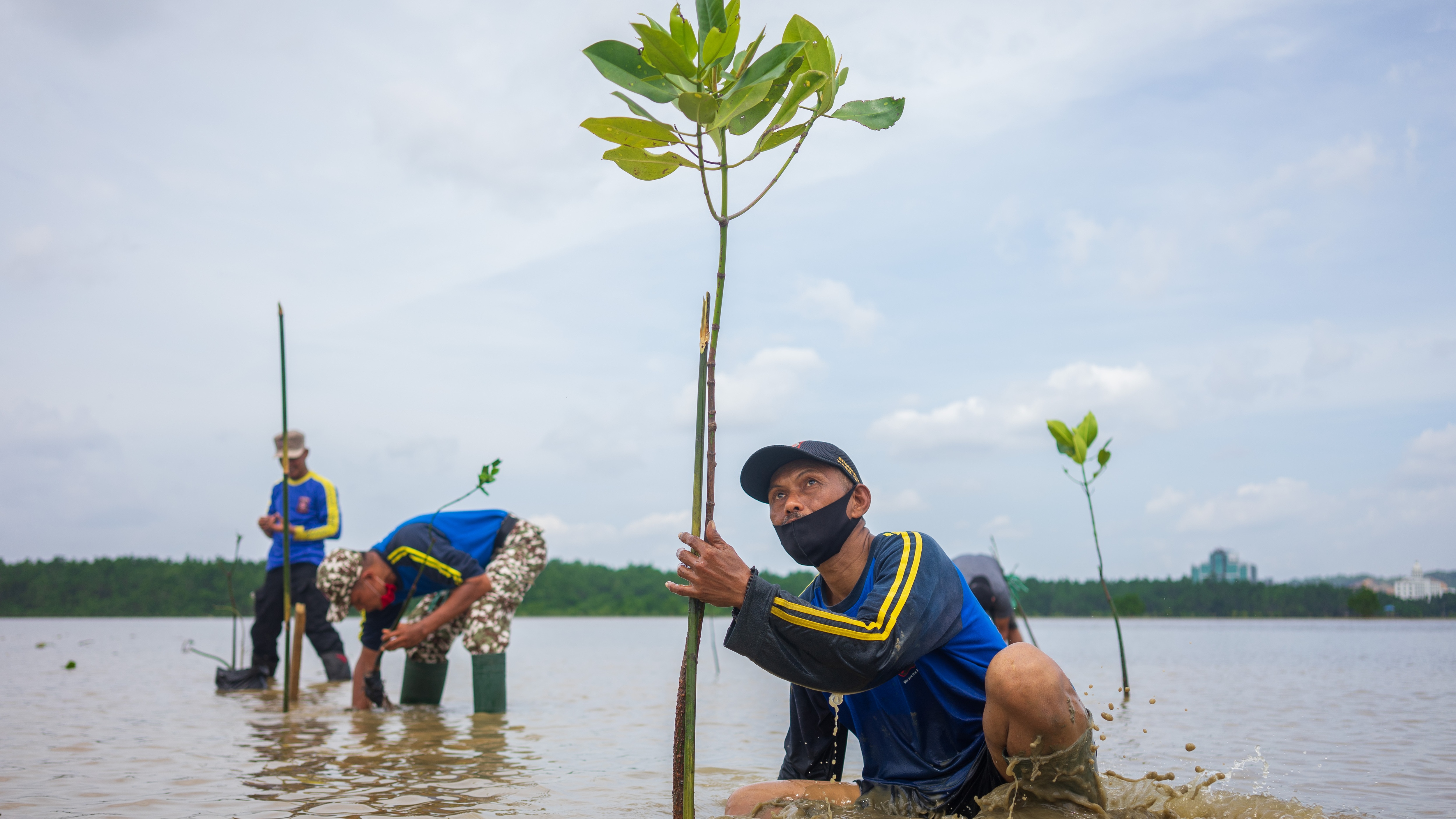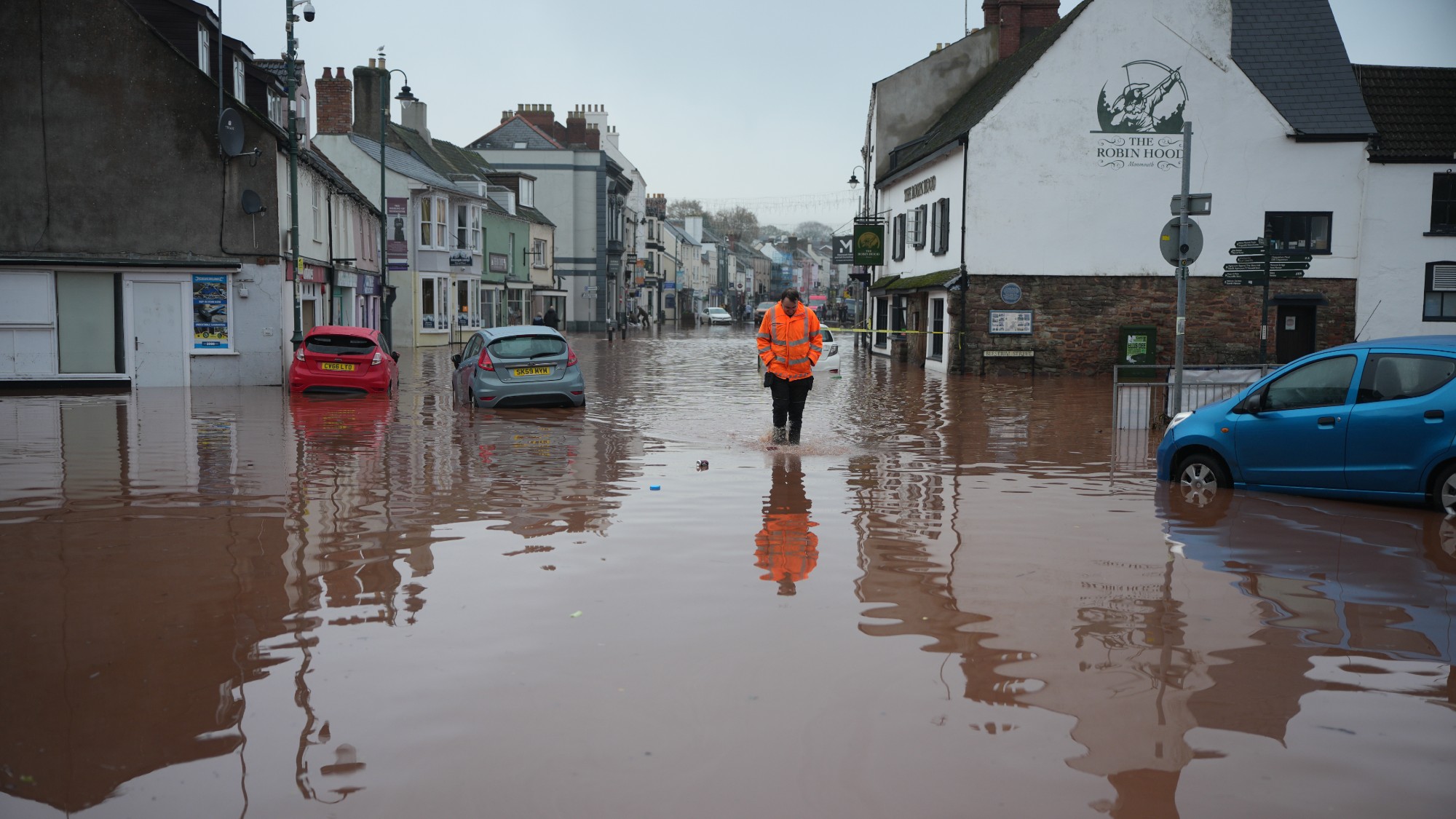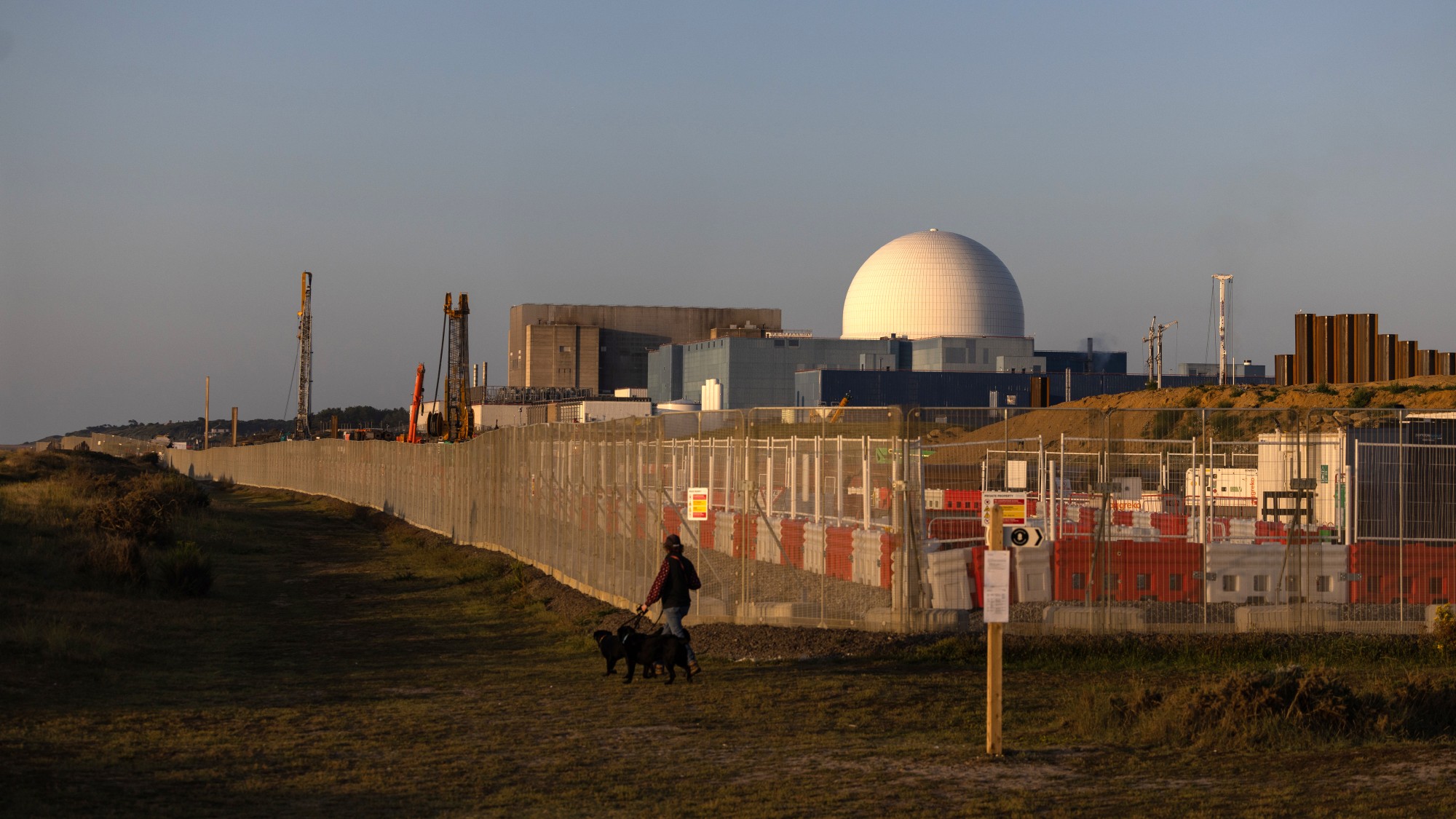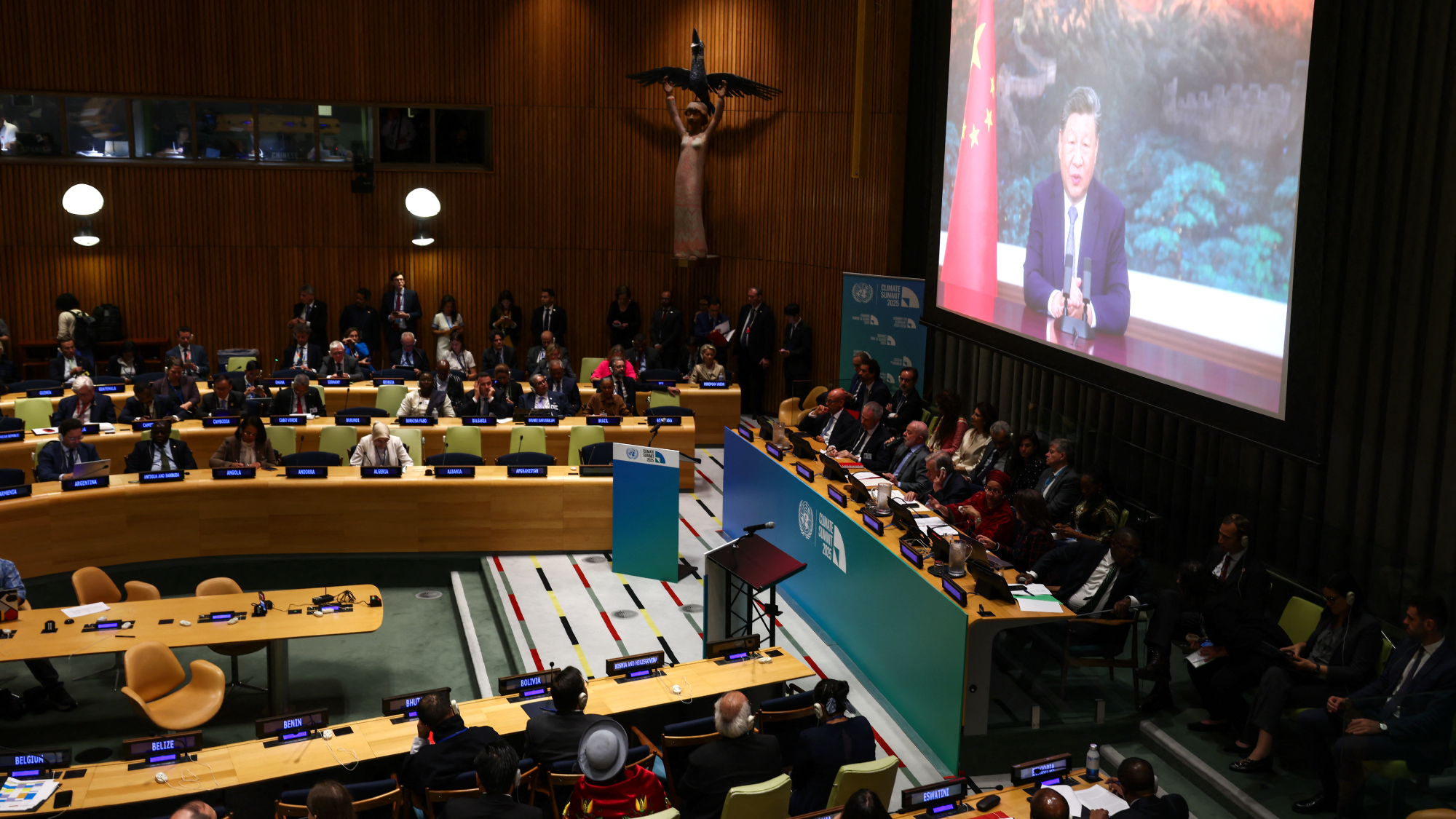The booming carbon offsetting market
New research suggests some of the biggest companies are using bogus schemes to offset their carbon emissions

A free daily email with the biggest news stories of the day – and the best features from TheWeek.com
You are now subscribed
Your newsletter sign-up was successful
In the ongoing race to lower carbon emissions, many companies are choosing to purchase carbon offsets in order to compensate for their own emissions.
But new research into the forest carbon offsets approved by the world’s leading certifier and used by Disney, Shell, Gucci and other big corporations has found they are “largely worthless and could make global heating worse”, according to a new investigation by The Guardian, the German weekly Die Zeit and SourceMaterial, a non-profit investigative journalism organisation.
How does carbon offsetting work?
Offsets sell a kind of dream: that companies (or people) who are under pressure to cut their emissions can effectively buy their way out of the problem. They can compensate for their own emissions of carbon dioxide or other greenhouse gasses by providing an emissions reduction elsewhere. Examples might include financing wind farms to replace coal-fired power plants, or energy efficiency programmes offering, say, home insulation. Almost half, however, relate to forestry, such as tree planting and reforestation projects that sequester carbon; many schemes also involve buying up areas of rainforest threatened by logging in order to preserve it. Offsets mostly exist on a slightly problematic hypothetical plane: the benefits of each project need to be determined relative to what would have occurred under a business-as-usual scenario.
The Week
Escape your echo chamber. Get the facts behind the news, plus analysis from multiple perspectives.

Sign up for The Week's Free Newsletters
From our morning news briefing to a weekly Good News Newsletter, get the best of The Week delivered directly to your inbox.
From our morning news briefing to a weekly Good News Newsletter, get the best of The Week delivered directly to your inbox.
How big is the market?
Different markets exist. For instance, an official regulated market for buying and selling carbon “credits” was set up under the Kyoto climate change agreement; this proved highly problematic, though work is under way on a new system. Mostly, the term offset refers to the unregulated (or voluntary) market: private organisations charge customers a certain amount to remove a tonne of carbon dioxide from the atmosphere; such schemes are approved by non-profit bodies such as Verra, which certifies them using its “Verified Carbon Standard”. The market is now worth about $2bn per year, and is growing fast: it is forecast to be worth $10bn-$40bn by the end of the decade. Shell, for instance, has set aside more than $450m to invest in such projects. Amazon, Gucci, Salesforce, Shell, Disney, British Airways, Leon and many others are also increasingly relying on voluntary carbon offsets to align with net-zero goals or the ethical demands of investors.
Is offsetting a good idea?
In theory, properly designed, rigorously regulated offsets could be very useful. If companies must pay for their emissions, they have a strong incentive to emit less, and more money will go to activities that avoid, reduce or remove emissions. Offsets allow sectors that unavoidably rely on fossil fuels – such as aviation – to do their bit. They have also allowed billions of dollars to be channelled to the vital work of preserving forests (deforestation contributes up to 20% of annual global emissions, about the same as all the world’s lorries and cars). Such schemes could be used, too, to help finance new carbon reduction tools, such as nascent technologies that can suck carbon out of the air. As things stand, however, the industry is plagued by problems, prompting analysts to question whether it is doing more harm than good.
What are those problems?
Offset schemes have a long history of overpromising and under delivering. With the best will in the world, they are intrinsically difficult to calculate. Some carbon savings have been applied to projects that might have happened anyway. Being notional, some offsets have been sold more than once. Arguably, they provide perverse incentives: there have been cases of Chinese factories deliberately ramping up their emissions in order to claim cash credits for reducing them later. Even the best schemes may not deliver permanent savings: in 2021, trees planted for offsets went up in flames as wildfires ripped across the US west coast, spewing carbon back into the air. Critics regard them as a licence to pollute because they allow companies to carry on emitting. Some forestry projects have also caused conflicts with local people.
Are these problems insuperable?
According to the industry, no. In theory, there are well-established criteria for getting round all these problems. Schemes are assessed according to “additionality”: would the project happen anyway without the offset credits? Carbon reductions can be scientifically assessed using, for instance, satellite imagery, and certified by reliable third parties. Some only certify projects when the promised carbon savings have actually been achieved, and are deemed likely to be permanent.
A free daily email with the biggest news stories of the day – and the best features from TheWeek.com
So, in practice, do they actually work?
It appears not. The voluntary offset market was described in a report by Credit Suisse last year as a “wild west”. A damning investigation by The Guardian and Die Zeit earlier this year evaluated the credentials of Verra, a US-based body that rubber stamps 75% of all offsets in the voluntary sector, and deemed that more than 90% of rainforest offset credits it approved were “largely worthless and could make global heating worse”. Verra disputes this finding, but the evidence was disturbing. Only a handful of Verra’s rainforest projects appeared to show genuine deforestation reductions. In one case, in Peru, there was evidence that indigenous people had been evicted from protected areas.
What’s the future for offsets?
There are certainly offset schemes that work well. But for now, many analysts agree that voluntary schemes are questionable and that claims made about offsets, even by well-respected companies, may be dubious. Attempts to set widely agreed criteria are under way. The new Integrity Council for the Voluntary Carbon Market hopes to introduce guidelines enabling buyers to identify “high- integrity” carbon credits later this year. But the fear is that, for the time being, offsets are being used, particularly by energy firms, to stave off pressure to transform their operations – and that they may in fact be slowing the pace of decarbonisation. “My fear is that we’re going to look back at this brief moment in time when we had to really rein in our emissions,” says Barbara Haya, of the Berkeley Carbon Trading Project, “and say we failed.”
-
 ‘Poor time management isn’t just an inconvenience’
‘Poor time management isn’t just an inconvenience’Instant Opinion Opinion, comment and editorials of the day
-
 Bad Bunny’s Super Bowl: A win for unity
Bad Bunny’s Super Bowl: A win for unityFeature The global superstar's halftime show was a celebration for everyone to enjoy
-
 Book reviews: ‘Bonfire of the Murdochs’ and ‘The Typewriter and the Guillotine’
Book reviews: ‘Bonfire of the Murdochs’ and ‘The Typewriter and the Guillotine’Feature New insights into the Murdoch family’s turmoil and a renowned journalist’s time in pre-World War II Paris
-
 Why broken water companies are failing England and Wales
Why broken water companies are failing England and WalesThe Explainer With rising bills, deteriorating river health and a lack of investment, regulators face an uphill battle to stabilise the industry
-
 Environment breakthroughs of 2025
Environment breakthroughs of 2025In Depth Progress was made this year on carbon dioxide tracking, food waste upcycling, sodium batteries, microplastic monitoring and green concrete
-
 How will climate change affect the UK?
How will climate change affect the UK?The Explainer Met Office projections show the UK getting substantially warmer and wetter – with more extreme weather events
-
 Are we entering a ‘golden age’ of nuclear power?
Are we entering a ‘golden age’ of nuclear power?The Explainer The government is promising to ‘fire up nuclear power’. Why, and how?
-
 The Southern Ocean is holding in a ‘burp’
The Southern Ocean is holding in a ‘burp’Under the radar The heat from the past can affect the future
-
 Builders return to the stone age
Builders return to the stone ageUnder the Radar With brick building becoming ‘increasingly unsustainable’, could a reversion to stone be the future?
-
 China vows first emissions cut, sidelining US
China vows first emissions cut, sidelining USSpeed Read The US, the world’s No. 2 emitter, did not attend the New York summit
-
 Europe's heatwave: the new front line of climate change
Europe's heatwave: the new front line of climate changeIn the Spotlight How will the continent adapt to 'bearing the brunt of climate change'?